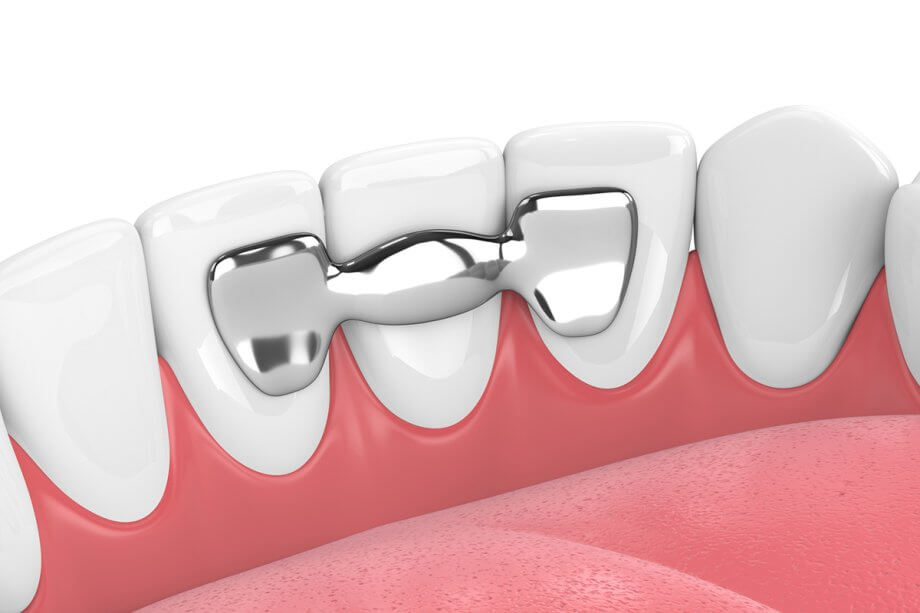Who is Responsible for Dental Implant Failure?[Revealed]

Poor oral hygiene, smoking, pre-existing medical conditions, and inadequate installation by the dentist or oral surgeon are just a few causes of dental implant failure. Dental implants have become famous for individuals seeking to replace missing teeth.
While these prosthetic devices offer a range of benefits, including improved oral health and enhanced aesthetics, there are instances when they may not be successful. Dental implant failure can occur for various reasons, often requiring additional treatment and intervention.
Understanding the factors responsible for implant failure is crucial to effectively preventing and addressing such complications. We will explore the common causes of dental implant failure and delve into the responsibilities of different parties involved in the dental implant process. By identifying the key players accountable for implant failure, patients can make informed decisions while choosing a dentist or oral surgeon and take appropriate steps to maintain the longevity of their dental implants.
Understanding Dental Implants And Their Benefits
Dental implants have revolutionized dentistry by providing a long-term solution to missing teeth. Unlike traditional dentures or bridges, dental implants are a permanent replacement option that closely mimics the natural tooth structure. This makes them popular among individuals looking to restore their smiles and regain confidence.
What are dental implants?
Dental implants are artificial tooth roots surgically placed into the jawbone to provide a stable foundation for replacement teeth. They are typically made of titanium, a biocompatible material that fuses with the jawbone through osseointegration. This integration ensures the implants become a part of the natural dental structure, providing excellent stability and durability.
Advantages of dental implants:
- Natural look and feel: Dental implants are designed to blend seamlessly with your natural teeth, giving you a natural-looking and aesthetically pleasing smile.
- Improved oral health: Unlike traditional dental bridges, implants do not require the alteration of adjacent teeth. This preserves the integrity of your natural teeth and helps maintain long-term oral health.
- Enhanced chewing and speaking ability: Dental implants provide a strong and stable foundation for replacement teeth, allowing you to enjoy your favorite foods and speak confidently.
- Long-lasting solution: With proper care and maintenance, dental implants can last a lifetime, making them a cost-effective investment in oral health.
- Prevent bone loss: When a tooth is missing, the surrounding jawbone can deteriorate over time. Dental implants stimulate the bone, preventing bone loss and preserving facial structure.
The increasing popularity of dental implants:
In recent years, dental implants have gained popularity due to their numerous advantages over traditional tooth replacement options. The rising demand for dental implants can be attributed to their superior functionality, durability, and natural appearance. People increasingly recognize the importance of long-term oral health and opt for dental implants to restore their smiles and maintain a high quality of life.
Factors Affecting Dental Implant Success
Regarding dental implants, achieving a successful outcome is a top priority for both the patient and the dentist. However, dental implant failure can occur due to various factors. Understanding these factors is crucial in preventing complications and ensuring the longevity of the implant. In this article, we will explore three key factors affecting dental implant success:
- The importance of proper oral hygiene
- The impact of pre-existing medical conditions
- The role of smoking and tobacco use
Importance of Proper Oral Hygiene
Proper oral hygiene plays a vital role in the success of dental implants. Maintaining good oral hygiene habits before and after the implant procedure dramatically reduces the risk of implant failure. Plaque and bacteria can accumulate around the implant site, leading to infection and peri-implantitis, characterized by inflammation and bone loss.
To ensure the success of your dental implant, it is essential to follow these oral hygiene practices:
- Brush your teeth at least twice daily using a soft-bristled toothbrush and fluoride toothpaste. Brush gently around the implant area, paying extra attention to removing plaque.
- Floss daily, using a floss threader or interdental brushes to clean between the implant and adjacent teeth.
- Use an antimicrobial mouthwash to rinse your mouth, helping to kill bacteria and reduce plaque buildup.
- Visit your dentist regularly for professional cleanings and check-ups. Your dentist can examine the implant site and ensure everything is in good condition.
Impact of Pre-Existing Medical Conditions
Pre-existing medical conditions can impact the success of dental implants. Certain systemic conditions such as diabetes, autoimmune disorders, and uncontrolled periodontal disease can hinder the healing process and increase the risk of implant failure. It is essential to inform your dentist about any medical conditions you have and provide a complete medical history before undergoing the implant procedure.
Medications such as bisphosphonates and immunosuppressants can also affect the integration of the implant with the jawbone. Your dentist will evaluate your medical history and collaborate with your healthcare provider to ensure appropriate precautions and treatment plans are in place to enhance the success of the implant.
Role of Smoking and Tobacco Use
Smoking and tobacco use are significant risk factors for dental implant failure. The harmful chemicals in tobacco products can impair the healing process and compromise the integration of the implant with the surrounding bone. Smokers have a higher chance of experiencing implant complications such as implant mobility, bone loss, and increased risk of infection.
If you are a smoker or use tobacco products, quitting is the best step to improve your dental implant’s success rate. By eliminating tobacco use, you allow the implant site to heal properly and reduce the chances of implant failure. Talk to your dentist or healthcare provider for assistance and support in quitting smoking.
Surprising Culprits Behind Dental Implant Failure
There are some surprising culprits behind this unfortunate outcome regarding dental implant failure. Understanding the factors contributing to implant failure is essential for dental practitioners and patients. This article will explore three key factors that can lead to dental implant failure: poor bone quality, implant placement technique, and excessive bite force.
The Influence of Poor Bone Quality
Poor bone quality can be a significant factor in dental implant failure. The success of a dental implant relies on integrating the implant with the surrounding bone. If the bone quality is compromised, it may not properly fuse with the implant, leading to instability and failure.
There are several reasons why poor bone quality can occur. For instance, patients with osteoporosis or a history of gum disease may have weaker bone structure, making it more challenging for the implant to integrate successfully. Additionally, previous tooth loss without timely replacement can result in bone deterioration, further complicating the implant procedure.
The Role of Implant Placement Technique
The technique used during implant placement plays a crucial role in the success or failure of the dental implant. An improper placement technique can result in various problems, including implant misalignment, inadequate osseointegration, and peri-implantitis, an inflammatory condition affecting the tissues surrounding the implant.
Factors contributing to implant placement technique failure include inexperienced or poorly trained dental professionals, incorrect implant positioning, insufficient bone preparation, and improper implant angulation. It is imperative to consult with a skilled and experienced dental implant specialist who can perform the procedure correctly.
Impact of Excessive Bite Force
Excessive bite force can exert undue pressure on dental implants, leading to failure. This can occur when patients chew on hard or sticky foods, grind their teeth (bruxism), or have a misaligned bite (malocclusion). The constant stress and overload on the implant can cause bone loss around the implant, weakening its support and eventually resulting in implant failure.
Proper bite alignment, using occlusal splints or night guards for bruxism, and avoiding excessive force on the implant are essential in maintaining the long-term success of dental implants. Regular dental check-ups and monitoring the implant’s condition can help detect any issues early on, preventing further complications.
In conclusion, understanding the surprising culprits behind dental implant failure is vital to preventing this unfortunate outcome. Ensuring good bone quality, employing proper implant placement techniques, and managing excessive bite force can contribute to dental implants’ long-term success and longevity.

Credit: www.periodontal.com
Frequently Asked Questions Of Who Is Responsible For Dental Implant Failure
What Are the Common Causes of Dental Implant Failure?
Poor oral hygiene, smoking, uncontrolled diabetes, insufficient bone density, and implant fractures are just a few of the factors that can lead to dental implant failure. Addressing these issues before undergoing the procedure is essential to increasing the chances of a successful outcome.
Can Dental Implant Failure Be Prevented?
Prevention of dental implant failure starts with proper oral hygiene and regular dental check-ups. Good oral health habits such as brushing, flossing, and rinsing with an antibacterial mouthwash can help prevent complications. Avoiding smoking, maintaining a healthy lifestyle, and following post-operative instructions from your dentist can also significantly reduce the risk of implant failure.
What Are the Signs of Dental Implant Failure?
Signs of dental implant failure may include pain, swelling, gum recession, implant mobility, and visible bone loss around the implant area. If you experience any of these symptoms, you must immediately contact your dentist or implant specialist for an evaluation and appropriate treatment.
Can A Dental Implant Be Replaced After Failure?
In some cases, a failed dental implant can be replaced. The treatment options for implant failure depend on the underlying cause and the condition of the surrounding tissues. Your dentist or implant specialist will assess the situation and recommend the most suitable course of action, which may involve replacing the implant and addressing any contributing factors.
Conclusion
The responsibility for dental implant failure is a shared one. While the dentist plays a crucial role in the proper placement and maintenance of the implant, patients must also take responsibility for their oral hygiene. Regular dental visits, proper hygiene practices, and adhering to post-surgical instructions can significantly reduce the risk of implant failure.
Understanding the contributing factors and working together can help ensure successful outcomes for dental implant procedures. Remember, prevention is critical to long-lasting dental implants.






One Comment